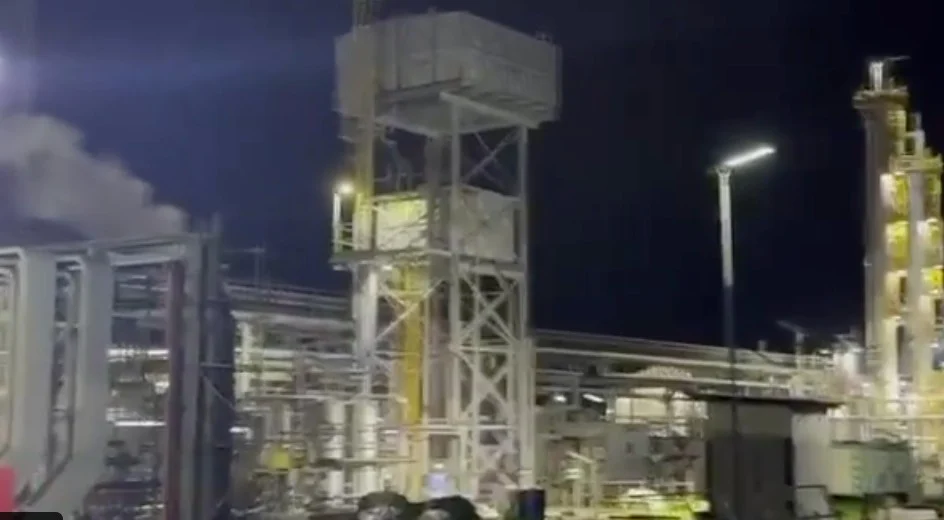
After resuming production, less than a month, Nigeria’s Port-Harcourt Refinery has ceased operations for the second time, raising concerns about the effectiveness of its $1.5 billion rehabilitation project.
The shutdown reportedly took effect on Thursday, December 19, 2024, when the lifting of Premium Motor Spirit (PMS), commonly known as petrol, stopped.
In late November, the Port-Harcourt refinery shut down operation with only its non-petroleum unit running which is the Crude Distillation Unit (CDU).
The CDU produces naphtha, kerosene and diesel but cannot produce the component which is needed for the Premium Motor Spirit (PMS) otherwise known as petrol, according to top sources at the refinery.
State-run oil company NNPCL initially claimed the refinery was up and trucking out PMS to the Nigerian public.
It was gathered that the old section of the Port-Harcourt refinery was working and it was blending “Crack C5 with the Naphtha” and trucking it out as Premium Motor Spirit, which some staff warned would have an “effect” on vehicles.
The NNPCL came up with the idea of blending Crack C5 with the Naphtha from the primary units because the secondary units are not ready yet, investigative news outlet Sahara Reporters had reported, citing the top sources.
However, sources told local newspaper The Punch on Saturday that loading operations at the refinery’s 18-arm loading bay had been halted since Friday, December 13, leaving the bay empty.
Tankers that typically crowd the refinery’s premises were seen stranded, with 18 trucks parked along the busy access road and nine inside the parking yard.
The depot, once a hub of activity, was eerily quiet, with minimal human or vehicular movement.
The 60,000-barrel-per-day plant, inaugurated with much fanfare on November 26, 2024, by Nigerian National Petroleum Company Limited (NNPCL) CEO Mele Kyari, was intended to signal a new era in Nigeria’s energy production.
The rehabilitation project, approved in March 2021, aimed to revamp the facility, which had been dormant for years.
The latest shutdown has generated questions about the viability of the refinery’s operations and the accountability surrounding the multi-billion-dollar rehabilitation investment.
However, contrary to claims of 200 trucks being loaded, fewer than 10 trucks carried petrol that day.
Shortly after NNPC Group Chief Executive Officer Mele Kyari returned to Abuja, operations reportedly reverted to inactivity.
Stakeholders alleged that the petrol lifted during the reopening was old stock from the storage tanks.
Three weeks later, the loading bay was discovered to be deserted.
Meanwhile, the Petroleum Products Retail Outlets Owners Association of Nigeria explained that operations were scaled down for meter calibration and the de-watering of old stock to prepare for newly refined products.
Nigeria, Africa’s most populous nation, faces energy challenges. The country is heavily reliant on imported refined petroleum products, with the state-run NNPCL being the major importer of the essential commodities.
In September, businessman Aliko Dangote started producing fuel from his 650,000-capacity refinery on the outskirts of Lagos – to challenge the importation of fuel which went on for almost three decades. The refinery, which was initially bogged by regulatory battles, hopes to achieve its full capacity of 650,000 barrels per day by the end of the year.
Fuel queues are commonplace in the country. Prices of petrol skyrocketed since the removal of subsidy in May 2023, from around ₦200/litre to about ₦1,100/litre, compounding the woes of the citizens who power their vehicles, and generating sets with petrol, no thanks to decades-long epileptic electricity supply.
(With agencies)
Follow the KOIKIMEDIA NEWS 🗞️ CHANNEL on WhatsApp
